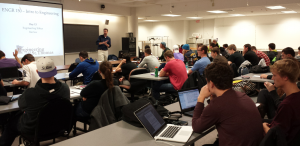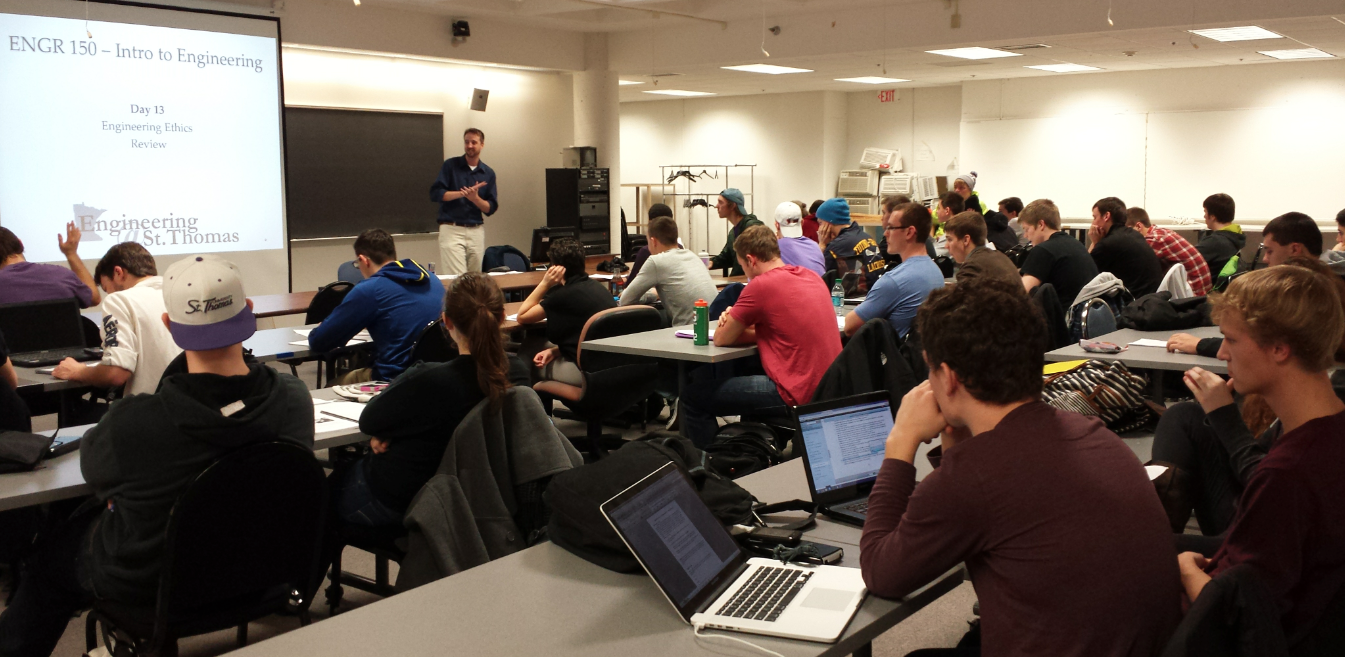St. Thomas announced Monday that its school of engineering received a $1.5 million grant from Xcel Energy for a Microgrid Research and Testing Center.
The grant will give the engineering program access to a small-scale, low environmental impact energy production facility, allowing a variety of technologies to be used and tested.

Don Weinkauf, School of Engineering dean, said the facility will allow the program to go beyond just studying concepts and instead apply them to real-world research.
“There’s a big value there between an idea and actually doing it in the marketplace, and the facility we’re going to develop is going to be key in helping people realize what’s available in the market,” Weinkauf said.
Weinkauf proposed the center last year along with Greg Mowry, electrical engineering associate professor, who will be responsible for the facility’s construction and operation. The Minnesota Public Utilities Commission approved the grant but has asked Xcel Energy to raise the total to $2.1 million
The center will host research on distributed energy sources such as wind turbines, energy storage methods, biofuel and fuel cells. Weinkauf said students will have a large role in this research.
“The grant is built into an educational curriculum development,” Weinkauf said. “The students will be able to see what’s going on inside of this facility on a daily basis.”
Senior Stu Lombardo said the center will enhance the opportunities of St. Thomas engineering students.
“It adds more traditional opportunities to what we already have,” Lombardo said. “There is not as much real world experience available to us.”
Lombardo said the Xcel Energy grant shows that St. Thomas’ engineering program is developing a good reputation in the marketplace.
“The biggest thing is that these people are beginning to recognize St. Thomas as a very high-caliber program,” Lombardo said. “It’s really a compliment to our school and program.”
This center will bring further attention to St. Thomas’ program and attract top engineering students.
The facility is expected to help St. Thomas in its goal to become carbon neutral by 2035, as well as supporting the development of renewable and alternative sources of electrical power by outside companies.

